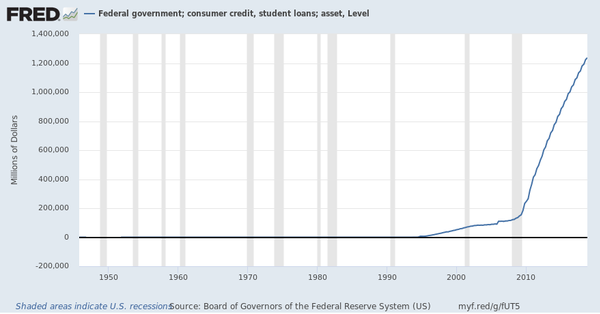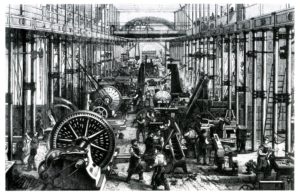… is that a lot of it was, well, better, than digital technology.
I was remembering, the other day, library card catalogues.
Here’s a truth many will refuse to believe: They were faster to use, easier to use, and provided better results than modern computerized library terminals. You looked up the code for what you wanted, flipped that section of the cards, and not only did you usually find the book you wanted, you found a bunch of other books which were related, whether or not their title sounded like it.
Then you went to that section of the library shelves and found all sorts of books on the subject in which you were interested, along with related subjects.
Then, there were employment centers. They put the cards on walls. You walked in, looked at them, copied down the contact info for any in which you were interested. The process took minutes, especially on any follow up visits, as you’d recognize any old jobs.
When they were replaced by computers, I found the process took at least ten times as long.
Back in the late 90s, I worked on a huge auditing project. Some of the files were computerized, some were still entirely on paper. I can state for a fact that the paper files were faster to audit — about half the time, because I was doing both at the same time.
Having worked on both paper file systems and computer systems, I can say that, in general, paper file systems were faster. Further, each new iteration of computer technology has slowed things down. The old mainframe systems were faster than PCs, and as PC software went through generations, it became less and less efficient. Often this was because managers wanted control: They wanted workers to click buttons and confirm things were done, and enter extraneous information, and use pull down menus, and blah, blah…all things that slowed work down.
Other times, it was because the servers were no longer on site, they were some distance away. I remember when one employer moved the servers to IBM: It may have saved $$ on server costs, but each button click took half a second or so. I actually measured the loss of worker productivity (because management refused to believe it existed). It was about 30 percent and the better the worker, the more it was. The best workers were losing about half their productivity; the system could not keep up with their flying fingers.
Then there are things like answering machines and emails. These are ways for people to interrupt workers and demand they do something — often something “right now.” These interruptions slow workers down, interrupting work flow. Often, if the worker was left alone, whatever problem the caller or emailer wanted dealt with would have been taken care of, but constant interruptions destroy productivity.
That isn’t to say that PCs, the internet, and cell and smart phones never increase productivity. Sometimes they do, usually by allowing remote work, as long as that remote work is not closely supervised. Remote workers are usually more productive if doing skilled work.
The horror show side is where real-time telemetry is used to micromanage workers doing repetitive tasks. Amazon warehouses and call centers are both hell-zones due to this. This certainly improves efficiency, but it turns workers into drones and loses all benefits of worker initiative and innovation. If a manager doesn’t think of it, it doesn’t happen, and even low-ranked managers in these regimes are really just supervisors dancing to an algorithm.
All of this speaks to a dirty secret: With a few exceptions, the allaged productivity gains from the internet and late telecom revolution just haven’t shown up. This revolution is a control revolution. It allows finely-tuned control by bosses and the powers that be. It allows them to have access to fine-grained information that, in the past, required a Stasi-like state, without having to send someone to the basement for the file, and with algos doing the first-wave of sorting and analysis.
Information is what this is good for — information and data.
But information doesn’t want to be free. Information wants to flow uphill to bosses, governments, and spies. Information allows levels of control which are, in effect, totalitarian.
Technologies are not neutral. They are better for some things than for others. And this tech revolution is a revolution whose main effect has been to allow closer control of humans. It is inherently authoritarian.
That’s not all it is — there have certainly been good effects — but it is not a utopian technology which makes everyone better off.
The reverse appears to be true, at least so far. Even in fields like social media (which are surveillance technologies masquerading as public forums), the studies are in, and they are clear: The more you use social media the worse it is for you.
Humans aren’t meant to be surveilled by anyone except their family, friends, and neighbours. Anything beyond that is inhuman and has negative effects on our well-being.
So, we have a technology which mostly hasn’t improved productivity, which is inherently authoritarian and which, the more it is used for certain major tasks, leads to reduced well-being.
Tech revolutions aren’t always good. So far, it looks like this one, on balance, is bad. (And I say this as someone who has personally benefited from this revolution.)
The results of the work I do, like this article, are free, but food isn’t, so if you value my work, please DONATE or SUBSCRIBE.




 There is a very bad habit among modern triumphalists, the types who go on and on about how great the current world is, to confuse capitalism and industrialization.
There is a very bad habit among modern triumphalists, the types who go on and on about how great the current world is, to confuse capitalism and industrialization.